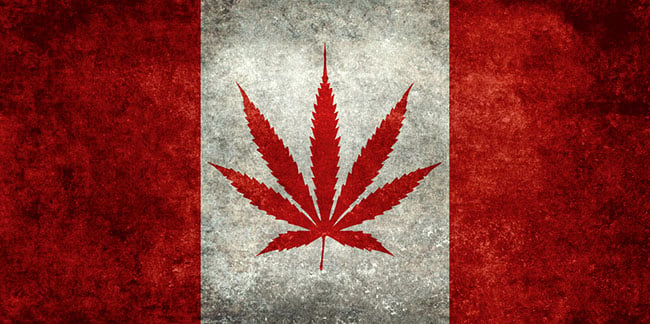.

Marijuana Legalization Roundup 2016
A brief overview of cannabis reform globally in 2016 with a view to further reforms next year.
While change came relatively slowly during 2016, legalization still marched forward inexorably around the world this year – particularly in the American hemisphere and in Europe. It is also very clear, that there are more (if not more dramatic) changes ahead for 2017, and that the bandwagon for reform is churning forward everywhere.
This is due to three things.
The first is, that the medical efficacy of marijuana can no longer be denied. The second is, that when countries legalize medical use, plans to produce domestically grown crops are sure to be in the cards relatively soon thereafter. It is too expensive to rely on imported crops for medical patients, who will, sooner or later, be covered under domestic health insurance programs for the same.
With domestically grown cannabis, albeit initially for medical only use, the drumbeat for further reform also becomes that much closer in countries, that are pursing the medical experiment first. Lastly of course, reform of both kinds, including recreational, is good for the economy, jobs and tax bases.
The following is a list of the most significant developments in countries, that moved forward in 2016, as well as predictions for what is in the cards next year.
U.S.
 Perhaps the real victor of the 2016 presidential election is not Donald Trump, but the fact, that legalization got such a huge push forward, particularly given voters’ actions in California. Both Trump and Clinton, while not big legalization proponents on the federal level, have expressed views in the past about leaving it up to the states.
Perhaps the real victor of the 2016 presidential election is not Donald Trump, but the fact, that legalization got such a huge push forward, particularly given voters’ actions in California. Both Trump and Clinton, while not big legalization proponents on the federal level, have expressed views in the past about leaving it up to the states.
However, California now represents an economy bigger than the UK overall – the sixth largest in the world. Regulation of the recreational business here will also undoubtedly serve as a model for things going forward not only in other U.S. states and at the federal level, but internationally as well.
Of the 9 states considering legalization of some kind (five of those were recreational use), 8 state initiatives succeeded this time, including 4 recreational use referendums. Additional reforms in other states this year, including a loosening of the strict medical regulations in New York, point to an industry, that has finally gone mainstream. It is now only a matter of time before the U.S. as a country, reschedules and legalizes cannabis at the federal level. That said, it is also very likely, that this will not happen before the midterms. As a result, federal reform is still at least several years off, despite the fact, that 28 states have now legalized medical use.
It is also highly likely, that there will be a strange divergence of the market here. Cannabis is highly likely to be regulated like alcohol. Medical users are more and more likely to be pushed into using manufactured products – that is, if they want the same covered under health insurance.
CANADA
After stalling all year on promised recreational reform, the Canadian government is finally poised to move forward nationally on recreational reform in 2017. This year has seen an expansion of the medical industry, with the largest drug shops moving into the game. Even more intriguingly, Canada began exporting marijuana for medical use globally.
 As a result, the Canadian government is on track to create the largest regulated legal recreational marijuana economy in the world so far, although total dollar amounts may be outstripped by the California state industry almost immediately. Legislation to do so will be introduced next spring and it is expected to become law by the end of next year. How this will impact rescheduling and coverage of medical users is unclear at this point, but it is clearly in the cards. This year, one insurance company began to cover medical users. Others are expected to follow next year, particularly given pending developments in both Canada overall as well as what is now imminently cooking in Germany on that score.
As a result, the Canadian government is on track to create the largest regulated legal recreational marijuana economy in the world so far, although total dollar amounts may be outstripped by the California state industry almost immediately. Legislation to do so will be introduced next spring and it is expected to become law by the end of next year. How this will impact rescheduling and coverage of medical users is unclear at this point, but it is clearly in the cards. This year, one insurance company began to cover medical users. Others are expected to follow next year, particularly given pending developments in both Canada overall as well as what is now imminently cooking in Germany on that score.
GERMANY
Next year, Germany will move into an unprecedented space. The country is now poised, with legislation already drafted, to become the first country to not only reschedule marijuana as a Schedule III drug, but cover it fully under health insurance and integrate medical cannabis into the medical industry and infrastructure. This will also then put pressure on just about every other legalizing country to do the same.
 This summer, perhaps not coincidentally, the government also approved the first import of medical grade cannabis from Canada. However, domestic cultivation for medical purposes will not begin until at least 2018, when the government plans to establish a national federal regulatory agency. Recreational use reform is sure to follow, but not at least on a federal level for the next three to four years. That said, with rescheduling, at least on a regional level, the government is also likely to face more pressure on the recreational front. Cities like Bremen and Berlin have been angling for regulated recreational industries for years now and it looks like Bremen will finally allow city residents to grow their own weed for any purpose.
This summer, perhaps not coincidentally, the government also approved the first import of medical grade cannabis from Canada. However, domestic cultivation for medical purposes will not begin until at least 2018, when the government plans to establish a national federal regulatory agency. Recreational use reform is sure to follow, but not at least on a federal level for the next three to four years. That said, with rescheduling, at least on a regional level, the government is also likely to face more pressure on the recreational front. Cities like Bremen and Berlin have been angling for regulated recreational industries for years now and it looks like Bremen will finally allow city residents to grow their own weed for any purpose.
AUSTRALIA
 The country announced the long anticipated start of a federally overseen and regulated medical industry in November. Domestic grow operations are now fully underway and the country has begun importing medical grade product from, you guessed it, Canada. There are also major medical trials and R&D efforts in the works, with results that may rebound internationally.
The country announced the long anticipated start of a federally overseen and regulated medical industry in November. Domestic grow operations are now fully underway and the country has begun importing medical grade product from, you guessed it, Canada. There are also major medical trials and R&D efforts in the works, with results that may rebound internationally.
ETC.
From Latin America to Israel and elsewhere in Europe, reform moved forward around the world this year, primarily on the medical front. Chile began domestic production and distribution of medically bound pot early in the year. In Columbia, this is now in the works. Argentina began importing low THC oil from the U.S. (for one province only) this autumn. Other countries in the region are also likely to follow suit, although it remains unclear if 2017 will be the year that they do it.
In Europe, Italy saw the most change this year. The Italian army finally began distributing the medical crops it has been growing to domestic pharmacies. Rome also saw the opening of its first semi-public “coffee shop” this autumn, although only medical patients can smoke on the premises.
Spain is poised for regulation of its freewheeling, if not hybrid industry via the introduction of now pending legislation due to pass next year, to regulate consumption in private clubs. This is also likely to impact how crops are grown and by whom.
Croatia, Turkey and Greece all moved into the medical column this year, with greater regulation and reform to no doubt follow in 2017.
Israel has also consistently moved forward this year. Earlier in the autumn, the government announced, that mainstream pharmacies would be allowed to sell medical cannabis. Perhaps the biggest change outside of this, however, is that the government appears poised to follow Canada’s lead in creating a legal export market and crop.



































